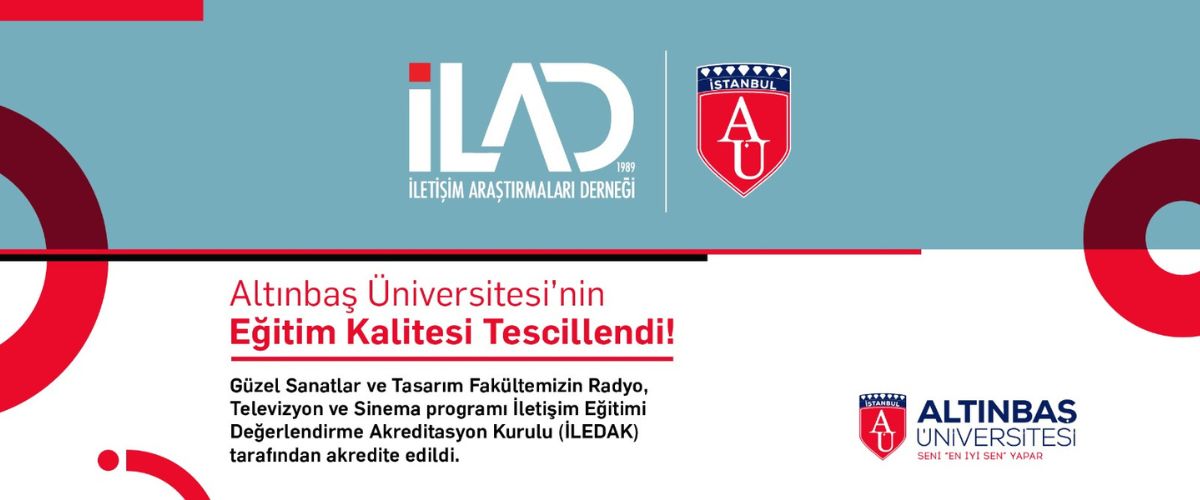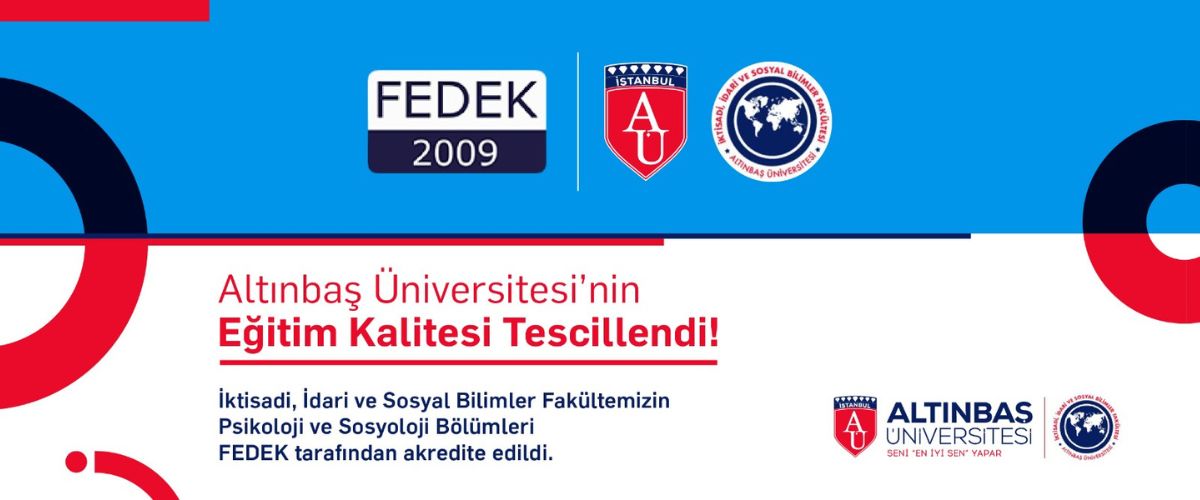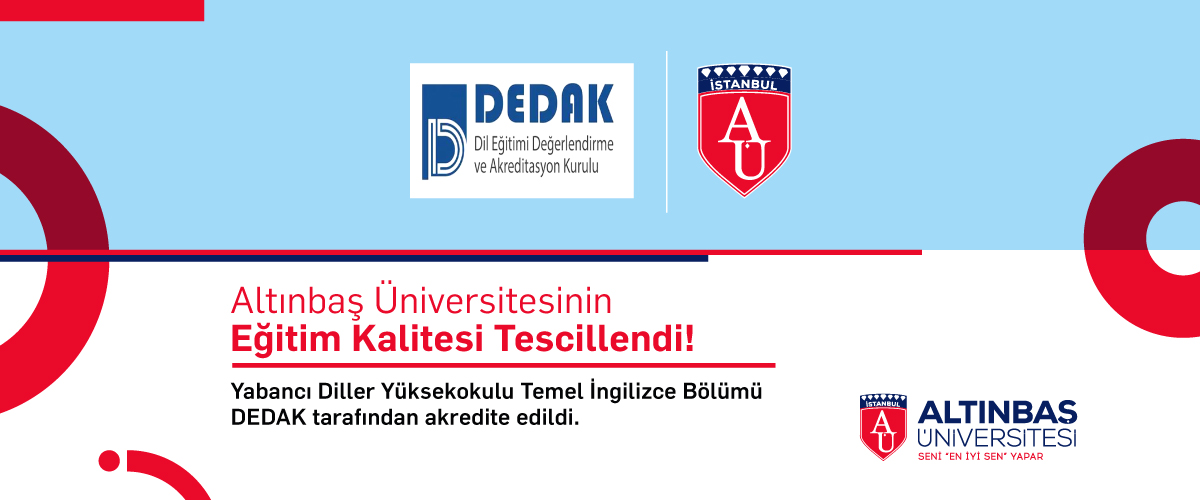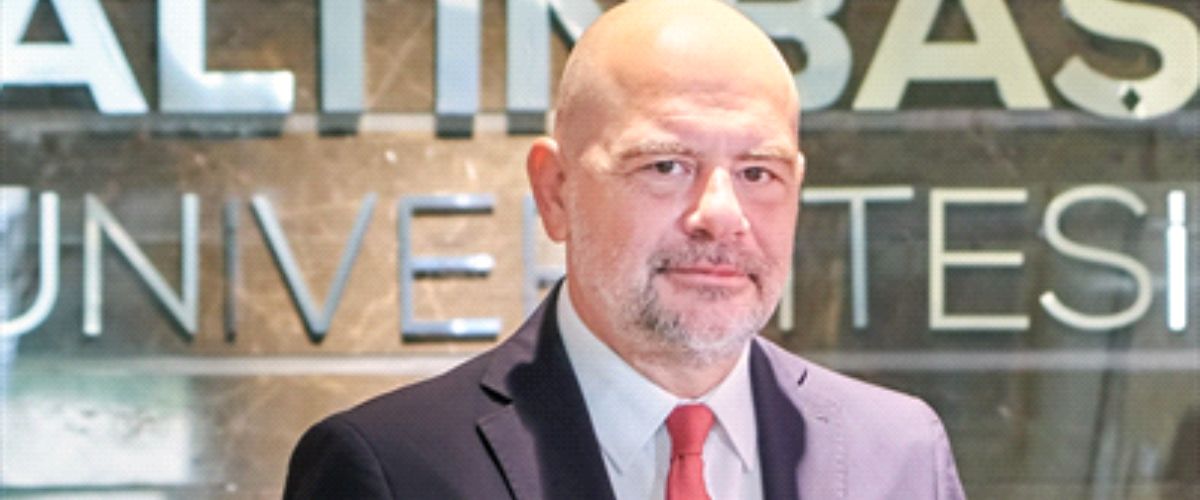4 New Accreditations for Altınbaş University
Altınbaş University Faculty of Fine Arts and Design Radio, Television and Cinema, Faculty of Economics, Administrative and Social Sciences Psychology and Sociology programs and School of Foreign Languages Basic English Department received ILAD, FEDEK and DEDAK accreditation.
Altınbaş University, which takes decisive steps to provide a good education to its students with the vision of an entrepreneurial, innovative and competitive university that keeps students' horizons wide with its strong academic staff, international structure and collaborations that add value to universal knowledge, has registered its quality with 4 new accreditations.
Altınbaş University Faculty of Fine Arts and Design Radio, Television and Cinema Program, which was evaluated by ILEDAK after the accreditation application made to ILAD, which has the “Quality Assessment Registration Certificate” issued by the Higher Education Quality Board, was accredited for 2 years and was entitled to receive the ILAD accreditation certificate.
Psychology and Sociology programs of the Faculty of Economics, Administrative and Social Sciences were accredited for two years by FEDEK, which has the “Quality Assessment Registration Certificate” issued by the Higher Education Quality Board, a leading accreditation institution in its field with its innovation and continuous development.
Altınbaş University School of Foreign Languages Basic English Department was also evaluated by DEDAK (Language Education Evaluation and Accreditation Board), which holds the “Quality Assessment Registration Certificate” issued by the Higher Education Quality Board, and accredited for five years between May 2024 and May 2029; it was entitled to receive the DEDAK Accreditation Certificate.
“Accreditation expresses contemporary standards”
Altınbaş University Vice Rector Prof. Dr. Argun Karacabey pointed out that the understanding of education has changed over time and has reached certain standards, and stated that accredited programs have contemporary standards. Prof. Dr. Karacabey said that accreditation bodies follow universal values and developments and observe the compliance of accredited programs with them, and emphasized that the accreditation process is therefore also important for students.
Evaluating the process, Prof. Dr. Karacabey said, “Thanks to the external evaluation, the deficiencies and weaknesses of the institutions that they themselves cannot realize are clearly revealed. Regardless of the outcome, the process already reveals an improvement, an effort to get better. In addition, the internal evaluation efforts started as soon as this process is initiated are also important in terms of strengthening and accelerating the improvement efforts.”
Karacabey said, “Even taking the risk to enter the accreditation process shows how much that institution is willing to develop and improve itself, and that it wants to get out of the process healthier by strengthening these weaknesses instead of being afraid of its possible deficiencies and weaknesses and hiding them. Being accredited undoubtedly means that these efforts and efforts are rewarded. In this respect, accredited institutions have an important place in the preferences of students not only because they prioritize and give importance to development, but also because they have met certain standards.”





